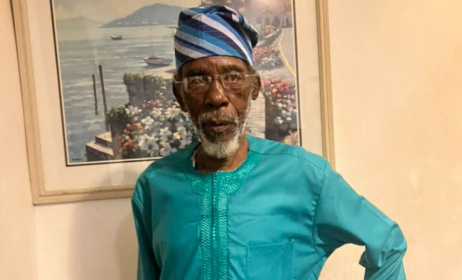Deadly protests erupt over killing of Ethiopian singer
Popular Ethiopian musician and activist Hachalu Hundessa was killed on 29 June, sparking deadly protests in the capital Addis Ababa.
 Hachalu Hundessa.
Hachalu Hundessa.
Hundessa, 34, succumbed to gunshot wounds at Tirunesh Beijing General Hospital after he was shot at Gelan Condominiums. His death was confirmed by Addis Ababa police commissioner Getu Argaw during an interview with state-owned media. He said the police was investigating the killing and an unspecified number of suspects had been arrested.
Following the news of Hundessa's death, three people were killed and others were critically injured when protests erupted in the country on Tuesday, AFP reported. Reports on social media said the police had used live rounds to disperse the crowds in Addis Ababa. The unrest also prompted the government to turn off the Internet in the capital.
Hundessa was well known for his political songs and came to be seen as a voice of the Oromo people, the country's largest ethnic group, during anti-government protests that swept Prime Minister Abiy Ahmed to power in 2018.
Tensions in Addis Ababa remain high amid rumours that Hundessa's body was being transported to the Oromia region to prevent his burial in the capital.
"I express my deep condolences for those of us who are in deep grief since the news of the death of the shining young artist Hachalu Hundesa," Abiy said. "We are at a time when we have to pay attention to activities in our country, given the gravity of the matter. Let us express our condolences by keeping ourselves safe and preventing further crime."
Hundessa was born and raised in Ambo. At 17 years of age, he was imprisoned for seven years in the Karchale Ambo prison for singing protest music. The prison is known for the torture and mistreatment of Oromo activists.
He found national fame in 2009 after the release of his debut album Sanyii Mootii. He released his second album Waa'ee Keenya in 2013 while in self-exile in the US. It became the best-selling African music album on Amazon within days of its release.
Hundessa was interviewed by the Ethiopia Observer in 2019 after returning to his home country. Asked why he had returned despite threats to his life, he said: "Nine of the songs on my first album were written in prison. I performed in Sudan and quickly became a hero for my people. But the government tried to silence me. I was arrested and tortured in Maekelawi [detention centre] for a week.
"Because of government oppression, I had to make my second album in the US. But I decided to return home to be with my people. I am willing to take risks and make sacrifices. I have faced assassination attempts."
His 2015 single 'Maalan Jira', which translates to 'what existence is mine?' laments the displacement of the Oromo. 'Jirraa', which was released in 2017, translates to 'we are here' and is a statement of endurance, resilience and self-affirmation of the Oromo people.































Comments
Log in or register to post comments